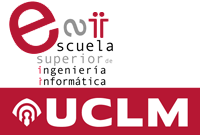Conferencia: “Non-Invasive Behavioural Analysis for Stress Detection”, por Paulo Novais
Fecha: 20 de junio
Lugar: Salón de Actos Agrupación Politécnica Superior
Hora: 12:00 horas
RESUMEN:
Stress can be viewed as a non-specific response of the body to any demand placed upon it. These external demands are called stressors (the load or stimulus that triggered a response) and the internal body changes that they produce are the stress response (triggered by a load or a stimulus). Stress has a significant influence in our day-to-day decision-making processes and actions. When under control, it can have a positive effect on our performance, creativity or problem solving. Otherwise, stress can be nefarious, affecting our attention or working memory, decreasing the quality and performance of our decisions. In that sense, information about the stress of individuals or teams of individuals working in certain domains (e.g. healthcare, air traffic controllers, risk management, stock market) can be very important in order to optimize the performance and, at the same time, increase the quality of the working environment.
In this talk we will go through several non-invasive methods of estimating the level of stress of human users being developed in the Intelligent Systems Lab of the University of Minho. We analyze the behavior of users when interacting with technological devices, in real-time, using only technological devices available on the market. Features such as the amount of movement, touch patterns, velocity of typing, mouse movements, acceleration on the handheld device, among others, are taken into consideration in order to provide, in real-time, an estimation of the level of stress of an individual.
BIO:
Paulo Novais es Profesor de Ciencias de la Computación en el Departamento de Informática de la Universidad de Minho, Braga (Portugal), e investigador de la CCTC (Centro de Ciencias y Tecnologías de la Computación). De la misma universidad obtuvo su Doctorado en Ciencias de la Computación en 2003 y su Habilitación en Ciencias de la Computación en 2011. Desarrolla su investigación científica en el campo de la Inteligencia Artificial, y, más concretamente, en representación del conocimiento y razonamiento, aprendizaje máquina y sistemas multiagente, con aplicaciones a las áreas de Derecho y de Inteligencia Ambiental.
Paulo Novais ha liderado o participado en varios proyectos de investigación patrocinados por instituciones públicas y privadas portuguesas y europeas y ha dirigido varios estudiantes de doctorado y de maestría. Es co-autor de más de 100 capítulos de libros, artículos de revista, ponencias, talleres y libros.
Ha sido presidente del Comité Organizador o Científico de ISAmI (Simposio Internacional sobre Inteligencia Ambiental), ESM 2011 (Conferencia Europea sobre Simulación y Modelado), SOCO 2011 (Conferencia Internacional sobre Modelos de Soft Computing en aplicaciones industriales y ambientales) y PROVE 2007 (Conferencia IFIP sobre Empresas Virtuales) y miembro del comité organizador de otros eventos varios (por ejemplo, Pervasive Health 2011, Intelligent Environments 2011, ECAI 2010, EPIA 2007).
Es vicepresidente de la APPIA, la Asociación Portuguesa para la Inteligencia Artificial.
|

